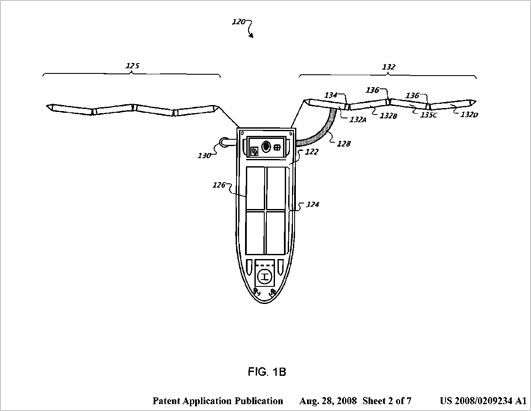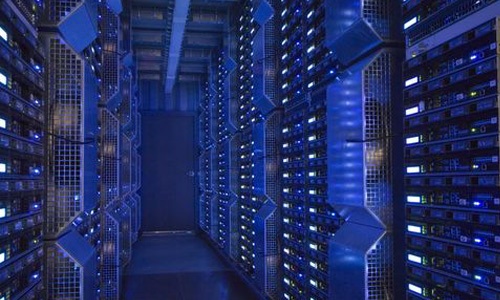
Google is at it again, thinking outside the box for ways to revolutionize technology, expand their reach and differentiate themselves from their competition (wait, what competition?). This time, Google will take to the sea with a recently filed patent for a ‘Water-based Data Center‘.
Google looks create mobile data centers to house their servers, or supercomputers, they use so its users get the fastest search results. It seems as though Google is looking to these data centers to alleviate some common problems experienced with operating such a large website.
First of all, Google aims to reach as many users as possible with the fastest searches as possible. By having mobile servers, Google can reach communities even in the most remote areas to ensure fast service. Good examples would have been at the 2008 Olympics in Beijing or even military response in to a natural disaster at a remote location. Often times a sudden flood of traffic can be too much for local infrastructure, causing delays in speed or even a crash of the entire system.

Second, some of Google’s current data centers are in massive warehouses that can be the size of football fields. Nobody really knows for sure how many there actually are, but they have lots of them all over the U.S. and the rest of the world. Google can reduce costs by putting data centers out at sea, especially if only needed in an area for a temporary fix.
Finally, servers used to host some of the larger websites use a lot of electricity to maintain. Both in running the computers and the cooling systems needed to make sure the computers don’t overheat. A fact sheet for National Data Center Energy Efficiency Information Program estimates that “data centers used 61 billion kWh of electricity in 2006, representing 1.5% of all U.S. electricity consumption and double the amount consumed in 2000. Based on current trends, energy consumed by data centers will continue to grow by 12% per year.” Google proposes that these data centers can be nearly self sustained by harnessing energy from ocean currents and waves and even use sea water for cooling.
Although these ‘Water-based data centers’ seem like an obvious idea, many threats Google has never had to deal with present itself. For example, the threat of pirates. I’m sure a Google data center would be a modern day pirates ultimate treasure. Google would also have to worry about storms and other natural disasters damaging the electrical components. After all, it only takes a small amount of water to fry a whole computer. Well, not unless they coated them with Golden Shellback Splash Proof Coating of course.
I guess we’ll have to wait and see if these water-based data centers really set sail.
Related Links:
New York Times: Google’s Search Goes Out to Sea
TimeOnline: Google Search find seafaring solution
US Patent & Trademark Office

 Join The Club
Join The Club












